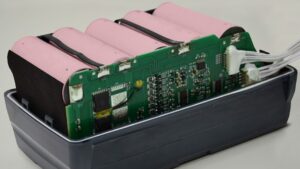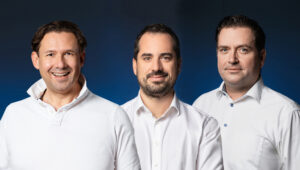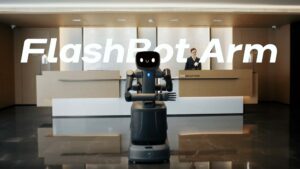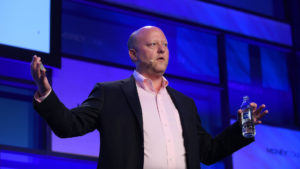The Romanian Founder Building Energy-Autonomous Hyperloop Capsules
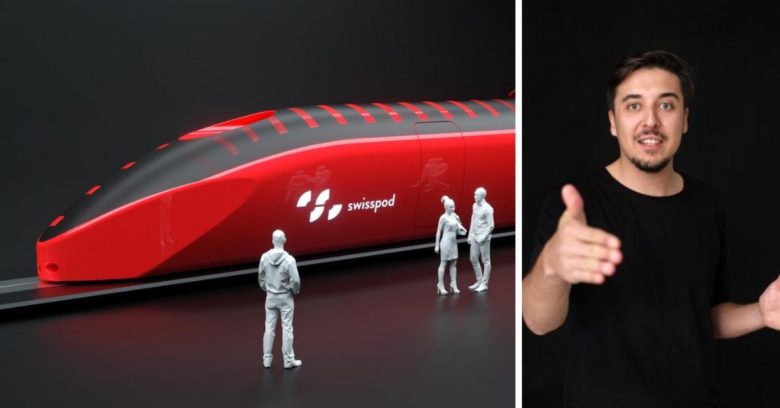
Hyperloop is one of those hyper-hyped technologies that are expected to completely transform the transportation industry. It all started back in 2013 when Elon Musk shared a concept for a new form of transit that would be faster than an airplane and powered entirely by solar energy. In practice, the idea involves the elimination of the things that slow down regular vehicles – friction and air resistance – by putting pods with passengers or cargo inside a sealed tube.
Since the concept was open-sourced by Musk many companies have entered the space working on bringing the hyperloop promise to reality, including Virgin, Hardt, and Hyper Poland. Recently, we also discovered a Romanian entrepreneur and researcher, Denis Tudor, who has won several hyperloop competitions and is now developing energy-autonomous hyperloop capsules from Lausanne in Switzerland, where he is also working on a Ph.D. in Hyperloop and Electrical Transportation.
Trending Topics: How did SwissPod come to life?
Denis Tudor: After the success in all these competitions organized by SpaceX, I felt that I had to move forward and spin-off a startup. I returned from California back to Europe and started building a team. So, SwissPod was born and our business plan is to develop capsules for B2B clients. We are a technology company and a technology company only.
Who are your target customers and what’s your positioning in the industry?
Our target customers are the future hyperloop operators. If you take a look at any type of transportation, you can see that there is an operator, a civil engineering company, which is building the infrastructure – highways, railways, hyperloop tubes, and a vehicle provider who in this it’s us, we will provide the capsules. We have a different business plan compared to the other big players currently in the space. Some want to be operators, others are focused on the infrastructure and building tubes, and we are the vehicle provider.
What’s your vision for the future of transportation?
Well, I imagine several things. The first one is about having a connected mode of transportation – you have an electric car, you drive to the train station and catch the train, then you jump on a hyperloop – so, you are connected all the way from your door to your final destination. Second of all, I believe in sustainable transportation. And, thirdly, something we actively apply at SwissPod is energy-autonomous vehicles. For example, to have hyperloop pods powered batteries and not to be dependent on other costly infrastructure because if we want to have a hyperloop in the world we need to minimize the infrastructure costs.
One of the most successful European startups, Lilium, is also focusing on energy-autonomous vehicles. Teslas are energy autonomous vehicles. I also believe that trains for short distances can be energy autonomous.
When can we realistically see hyperloop transporting passengers or cargo?
If you ask for my honest opinion, I don’t think hyperloop will be operational before the end of the decade. If we are really optimistic, there might be a chance. It really depends on multiple parameters. It really depends on the political decision, on investments, it really depends on the geography and soil – for example, in Switzerland, you can only build a hyperloop underground but if you go to the Middle East, it should go overground.
On a regulatory level, we are talking with the European Commission along with other hyperloop startups in order to have a standardization process for hyperloop in Europe. We started with the idea of having cargo transport before passenger transport but I think we will have both at roughly the same time.
What are your biggest achievements so far and your next priorities?
I think one of the biggest achievements is creating this amazing team. We have around 25 people on the team with lots of diverse expertise. From a technological point of view, I’d say it’s the propulsion system we have. Also, in less than one year of operations, we have attracted three different investors. Our next goal is to prepare three testing facilities.
What are the biggest engineering challenges when it comes to the development of hyperloop?
I think this interaction with the vacuum is very interesting and also the propulsion system is one of the most important things hyperloop has because it actually dictates the price and the design of the infrastructure. People are also still figuring out what is the optimal pressure inside a tube – nobody has this answer yet. In general, many of the technological challenges are embedded in the capsule.
Once operational, Swisspod’s capsule should be able to support speeds of up to 1200km per hour and travel the distance of between Geneva and Zurich (270 kilometers) in 17 minutes.













